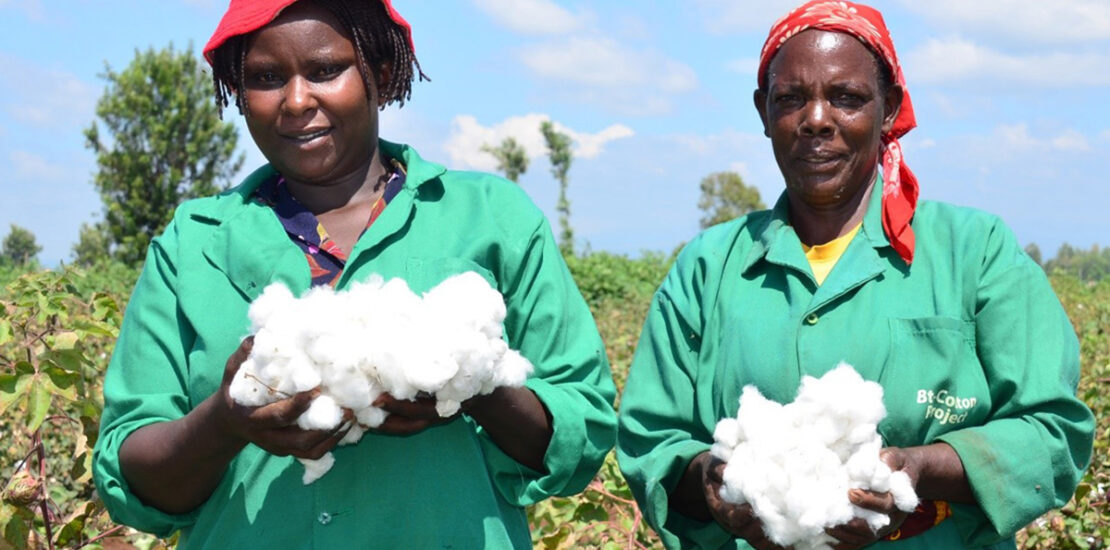Smallholder Farmers’ Seed Rights Under Threat as CEFROHT Challenges Kenya’s GMO Ban Lift in East African Court
- June 5, 2025
- Posted by: CEFROHT Reporter
- Category: News Updates

Smallholder Farmers’ Seed Rights Under Threat as CEFROHT Challenges Kenya’s GMO Ban Lift in East African Court
- June 5, 2025
- Posted by: CEFROHT Reporter
- Category: News Updates

Lifting of GMO Restrictions Sparks Fears of Seed Monopolies, Cultural Erosion, and Food Sovereignty Violations
For millennia, smallholder farmers and communities across Uganda and other developing nations have preserved biodiversity by saving, selecting, exchanging, and selling seeds. These customary practices sustain livelihoods, ensure food security, and uphold cultural heritage—particularly for women in Africa. However, since the 1990s, the rise of commercial seed systems and stringent intellectual property (IP) laws has eroded these rights, jeopardizing food sovereignty and agrobiodiversity.
The recent lifting of Kenya’s ban on genetically modified organisms (GMOs) has intensified concerns, exposing East Africa—and the continent at large—to corporate seed monopolies. While the Kenyan government claims the move enhances food security, critics warn it enables economic exploitation of smallholder farmers. Research links GMOs to seed monopolies, threatening farmers’ rights to indigenous seeds and culturally appropriate food systems.
In response, the Center for Food and Adequate Living Rights (CEFROHT) has filed a case at the East African Court of Justice, arguing Kenya’s decision violates the Treaty Establishing the East African Community. The lawsuit contends the ban’s lift breaches principles of good governance and good neighborliness, as it lacked meaningful consultation with East African citizens or member states.
Regional Risks and Legal Violations
East Africa’s porous borders and the Common Market Protocol facilitate unchecked cross-border movement, making it impossible to contain GMOs within Kenya. This undermines other nations’ domestic GMO regulations. Additionally, maize—a staple crop consumed as ugali or posho—is highly susceptible to cross-pollination, risking the extinction of indigenous varieties.
Agriculture sustains 70% of East Africa’s rural population, contributes 27% to regional GDP, and drives foreign exchange earnings. Despite this, Kenya’s unilateral action ignored the potential fallout for neighboring economies. GMOs also introduce legal threats: farmers elsewhere face litigation when patented seeds inadvertently enter their fields via wind or wildlife. Some biotech firms even engineer sterile “terminator seeds,” forcing farmers to repurchase stock annually—a direct assault on traditional seed-saving practices.
Food Security Myths and Systemic Failures
Kenya’s justification—that GMOs combat food insecurity—is disputed by evidence. A study by AgEcon found no strong correlation between GMO adoption and improved food security. Brazil and the U.S., leading biotech producers, saw minimal food security gains compared to non-GMO-reliant nations.
In East Africa, food waste—not scarcity—is the core issue. Post-harvest losses reach 30% for cereals, 50% for tubers, and 70% for fruits and vegetables. Addressing systemic inefficiencies, not promoting GMOs, would more effectively bolster food security.
Cultural and Ecological Consequences
Indigenous seeds are entwined with East Africa’s cultural identity, preserving traditional knowledge and sustainable practices. Their replacement by patented GMOs could cement a corporate food regime, stripping communities of autonomy and inflating seed costs. Article 21(5) of the African Charter on Human and Peoples’ Rights explicitly prohibits such foreign economic exploitation.
The case awaits cause listing, but its outcome could redefine regional food sovereignty. As CEFROHT fights to safeguard farmers’ rights, the court’s decision will resonate far beyond Kenya’s borders.
Key Concerns:
- Seed Monopolies: Corporate control threatens smallholders’ rights to save and trade seeds.
- Cross-Pollination: GMO contamination risks wiping out indigenous crops like maize.
- Legal Threats: Farmers face lawsuits over patented seeds spreading naturally.
- Cultural Loss: Indigenous seeds sustain heritage; GMOs imperil traditional practices.
- False Solution: GMOs address neither food waste nor systemic inefficiencies.
The East African Court’s ruling will determine whether regional governance prioritizes people—or profits.
- Growth through innovation/creativity:
Rather than be constrained by ideas for new products, services and new markets coming from just a few people, a Thinking Corporation can tap into the employees. - Increased profits:
The corporation will experience an increase in profits due to savings in operating costs as well as sales from new products, services and ventures.
- Higher business values:
The link between profits and business value means that the moment a corporation creates a new sustainable level of profit, the business value is adjusted accordingly. - Lower staff turnover:
This, combined with the culture that must exist for innovation and creativity to flourish, means that new employees will be attracted to the organization.
